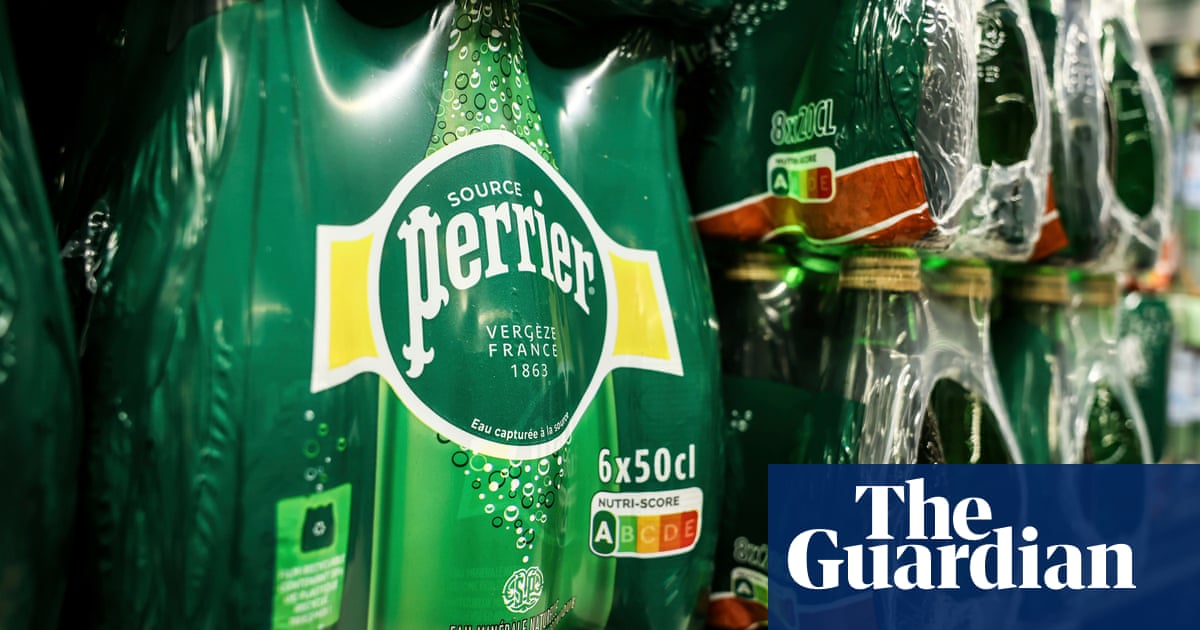France’s lucrative mineral water industry is under scrutiny after a report by the senate found the French government had covered up a scandal over illegal filtering treatments of premium brands.
At the heart of the report, released on Monday, is France’s world-famous fizzy water,Perrier. Obtained from a source in southern France and traditionally served on ice with a slice of lemon, Perrier has long been long known as the “champagne of table waters”.
But the report said the Swiss food giantNestlé, which acquired the brand in the early 1990s, had used purification filtering treatments that were not authorised for products labelled as “natural mineral water”.
The senators said the “highest levels” of the French government had been alerted to the filtering treatments by Nestlé itself, but had failed to act quickly or to alert legal authorities.
The senate report said that President Emmanuel Macron’s office at the Élysée “had known, at least since 2022, that Nestlé had been cheating for years”.
Senators stressed there had been “no proven health risk to consumers”. But they said that consumers and local authorities had been misled.
The report said: “In addition to Nestlé Waters’ lack of transparency, it is important to highlight the state’s lack of transparency, both towards local and European authorities and towards the French people.”
The report found that government advisers handled the issue, but Élisabeth Borne, the then prime minister, appeared “not to have been informed” .
EU regulations strictly limit what treatments are allowed for any product marketed as “natural mineral water”. Tap water is filtered and treated. But natural mineral water – which sells for 100–400 times the price of tap water – must be processed naturally and cannot be disinfected or treated in any way that alters its characteristics.
France is one of the world leaders in natural mineral water production, with 104 natural sites across the country, a market worth €2.7bn (£2.3bn) and more than 41,000 direct and indirect jobs.
But the industry was shaken in 2019 when a whistleblower raised an alert about one producer, Sources Alma – whose brands include Cristaline and Vichy Célestins –allegedly using non-authorised treatments to micro-filter the water. A representative of Sources Alma later told the senate committee it had not used illegal treatments and its water was safe.
The senate report said that, after the whistleblower’s warning, Nestlé Waters, whose brands include Vittel and Perrier, had voluntarily contacted the French government in 2021 – and later the president’s office – to say it had used filtering treatments. It submitted a plan to tackle the issue, which was later approved by the authorities.
Alexis Kohler, then secretary general of Macron’s office at the Élysée, had met Nestlé executives, according to senators. But he declined to give evidence to the senate committee. In February, Macron denied any knowledge of the case.
The senate said the relationship between Nestlé and the government became so close that the wording of a state report on water had been altered to fit with Nestlé’s requests. The Socialist senator Alexandre Ouizille, who led the six-month senate committee on mineral water said this was “Inexplainable, inexcusable, incomprehensible”.
Sign up toThis is Europe
The most pressing stories and debates for Europeans – from identity to economics to the environment
after newsletter promotion
Antoinette Guhl, a Green senator who had also worked on the report, said it was “a state scandal” that damaged trust between politicians and consumers.
In 2024, Nestlé Waters admitted using banned filters and ultraviolet treatment on mineral waters. It said it had always defended the safety of its products and had been transparent to authorities. It denied having put pressure on government.
The company paid a €2m fine to avoid legal action over the use of illegal water sources and filtering. It said at the time that that the replacement filters were approved by the government and that its water was “pure”.
Foodwatch, an independent food monitoring NGO, has filed a complaint against Nestlé Waters, accusing it of deceiving consumers. An investigation has been launched by a judge in Paris.
Nestlé Waters’ chief executive, Muriel Lienau, stated during her hearing before the senate committee in March, that all of the group’s waters were “pure at the source”.
In a statement to AFP, Lienau said she acknowledged the senate report, which “recognises the importance of sectoral issues requiring regulatory clarification and a stable framework applicable to all”.
Nestlé Waters also insisted that it had “never contested” the legitimacy of the senate’s work.
